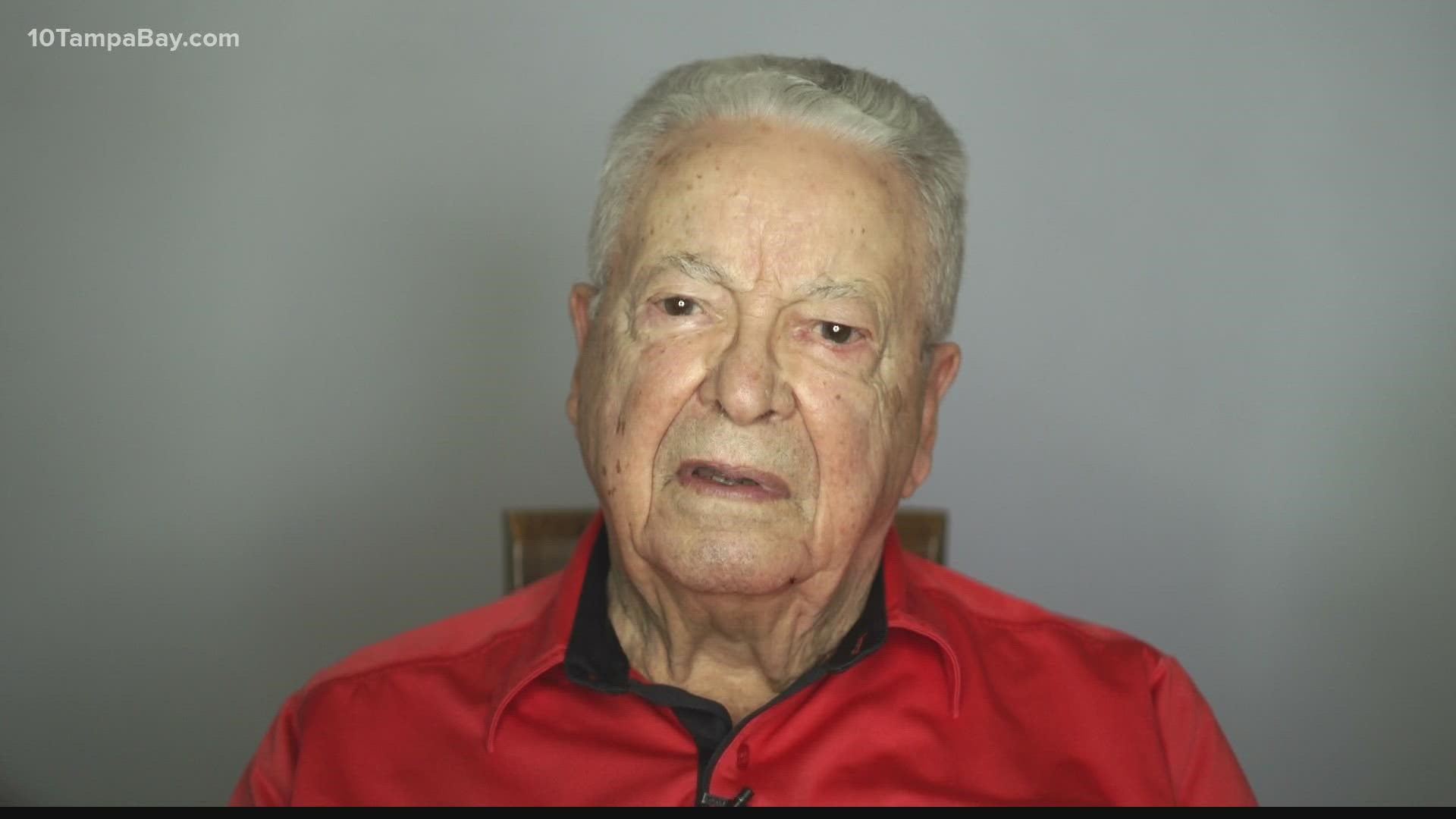SARASOTA, Fla — Lt. Co. George Hardy (Ret.) is a rare find.
"There were 940 Airmen that graduated from Tuskegee…flying school…” said Hardy. “And of that number 355 went overseas....and of that 355, eight of us are left. And I'm the youngest at 96."
The trailblazing veteran and Tuskegee Airman proved he had the willpower and smarts to fly overseas when the powers that be said he couldn’t.
"We proved that we could do as good a job as anyone else,” he said.
Trained at the Tuskegee Institute in Alabama, the Tuskegee Airmen were the first Black aviators to fight in the war. The military previously barred them from the role. A 1925 War College study deemed them inferior.
In many respects, they fought two wars: fascism abroad and racism at home.
"The thing is, it's our country, too. So, we've got to work for our country,” said Hardy.
On top of World War II, Hardy fought in Vietnam and Korea.
"I don't remember ever being scared or anything,” he said. "I flew every combat mission I was scheduled for."
Except one.
"In 1950, we got a new squadron commander, Lieutenant Colonel Fred W. Miller. And he wouldn't speak to me because he didn't believe, apparently, in racial integration."
Hardy says he replaced him on a mission at the last minute.
"I felt really bad knowing to see my crew take off with someone else in the right seat. But it so happened that was a first B-29 shot down over North Korea. And my crew went down with it...A lot of people say, ‘Colonel Miller, saved your life, maybe.’ I said no. If I had been with them, it probably wouldn't have happened."
It's that confidence and determination to overcome that makes George Hardy someone to be considered a hero for all.
"I think I got so much out of the service. A lot of people say I gave a lot, but I got a lot."

